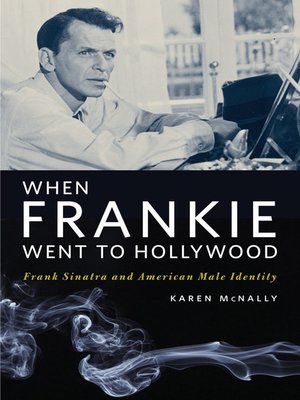
Sign up to save your library
With an OverDrive account, you can save your favorite libraries for at-a-glance information about availability. Find out more about OverDrive accounts.
Find this title in Libby, the library reading app by OverDrive.



Search for a digital library with this title
Title found at these libraries:
| Library Name | Distance |
|---|---|
| Loading... |
This first in-depth study of Frank Sinatra's film career explores his iconic status in relation to his many performances in postwar Hollywood cinema. When Frankie Went to Hollywood considers how Sinatra's musical acts, television appearances, and public commentary impacted his screen performances in Pal Joey, The Tender Trap, Some Came Running, The Man with the Golden Arm, and other hits. A lively discussion of sexuality, class, race, ethnicity, and male vulnerability in postwar American culture illuminates Karen McNally's investigation into Sinatra's cinematic roles and public persona. This entertainment luminary, she finds, was central in shaping debates surrounding definitions of American male identity in the 1940s and '50s.
| Contents Acknowledgements Introduction: Meet Frank Sinatra 1. "I'm the Kinda Guy, Boy, When I Move, Watch My Smoke": Career Mythology, Resentment and Working-Class Alienation 2. "I Ain't No Criminal. I Ain't No Coward": Ethnicity, Stereotypes, and Cultural Distinctions 3. "A Lot of People Need Somebody to Look Down On. Or They Think They Do": Tolerance, Witch-Hunts, and Civil Rights 4. "It's a Lonesome Old Town": Emotional Vulnerability, Noir Imagery and Damaged Veterans 5. "A Love God and No Mistake": Male Performance, Sexual Objectification and Swingin' Bachelors Conclusion: Chairman of the Board Notes Bibliography Frank Sinatra Filmography Index |"McNally's study . . . has an unexpected share of gossip and biographical surprises. . . . An exploration of Sinatra's forthright ethnicity, his strident championing of civil rights and his sexual objectification."—Times Literary Supplement
"A valuable addition to masculinity studies and Sinatra scholarship. Highly recommended."—Choice
"[McNally] provides meaning and recognition to Sinatra's films, a very important part of his career and his life. Her book is well worth reading."—Film International
|
Karen McNally is the Course Leader for Film Studies at London Metropolitan University.







